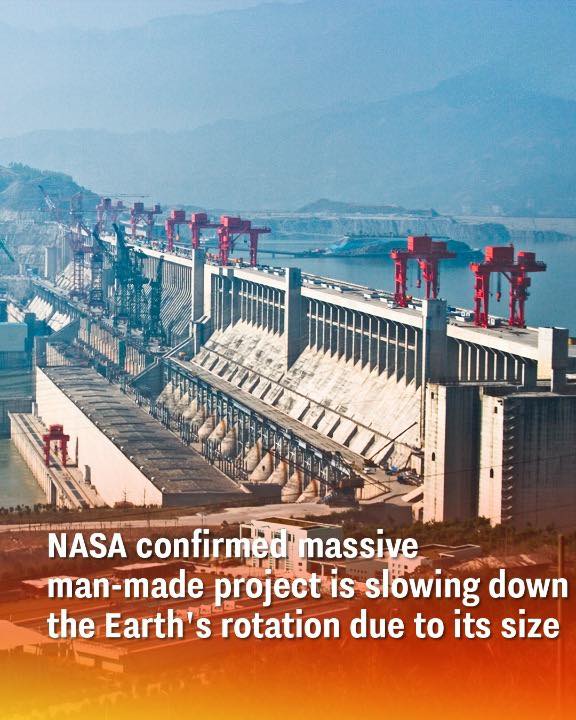It’s increased the length of the day 😳
Time is the one resource we can never reclaim, yet human engineering has managed to alter it—ever so slightly. In a fascinating study led by Dr. Benjamin Fong Chao of NASA’s Goddard Space Flight Center, scientists confirmed that China’s massive Three Gorges Dam has measurably slowed Earth’s rotation. By holding back nearly 40 cubic kilometers of water, the reservoir redistributed enough mass to lengthen each solar day by about 0.06 microseconds—an imperceptible 60 millionths of a second.
The mechanics are rooted in simple physics. Just as a figure skater slows down when extending their arms, shifting water farther from Earth’s axis increases the planet’s moment of inertia, causing a minuscule slowdown. Over cosmic timescales, that extra sliver of time adds up—roughly three extra days across the 13.8-billion-year age of the universe.
Detecting such a subtle effect requires extraordinary precision. Using data from GRACE satellites and decades of Earth-rotation records, researchers matched the dam’s filling in 2012 with measurable changes in the planet’s spin and even a slight two-centimeter shift in its axis.
While negligible in daily life, the finding illustrates how human infrastructure can leave fingerprints on planetary systems. Beyond rotation, the dam’s benefits are immense—producing over 100 terawatt-hours of renewable energy annually and displacing millions of tons of coal. Yet it has also displaced over a million people, altered ecosystems, and submerged cultural sites.
Ultimately, the slowing of Earth’s spin is less a practical concern than a poetic reminder. Human projects, once local, now shape the rhythms of the planet itself. Next time you feel pressed for time, remember—somewhere on the Yangtze, the world’s largest dam has already given you a fraction more.






Post Comment